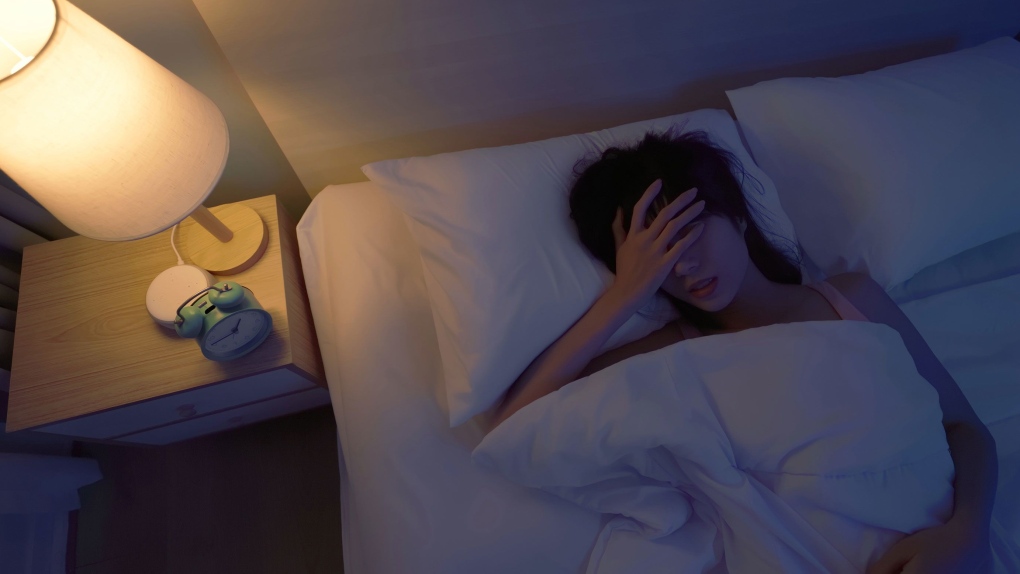A report warns that over 14 million Britons are afflicted with an undiagnosed sleep disorder that poses a health risk.
It further states that sleep deprivation can hinder productivity at work and contribute to physical and mental health issues, costing the economy and NHS billions of pounds.
According to The Sleep Charity’s Dreaming of Change report, society has “normalised sleep issues,” discouraging 69% of those afflicted from seeking assistance despite experiencing the condition for an average of six years.
Workplace stress and “sleep poverty,” which includes factors like substandard bedding and disruptive companions, are cited as causes of insufficient kip.
To raise awareness of the ‘crisis,’ the charity stated that the government should publish a ‘desperately required’ National Sleep Strategy. It also highlighted new research indicating that the availability of recommended treatments for sleep disorders varies by postcode. 
It even asserts that some GPs are unaware of the available resources, which exacerbates the situation.
A survey conducted among 2,000 adults revealed that sleep problems affect nine out of ten individuals, one in two engage in high-risk or hazardous behaviors when unable to sleep, and millions of people live with untreated sleep disorders such as insomnia or sleep apnea, which are detrimental to their health.
75% of those with employment report that tension at work has contributed to sleep disturbances within the past six months. Conversely, one-third of the population lives in “sleep poverty,” an environment characterized by unfavorable sleeping conditions, noise pollution, and unsettling surroundings that negatively impact the quality of sleep.
Although the correlation between inadequate sleep and severe health issues such as cancer, stroke, and infertility is recognized by merely one in every twenty individuals, over one-third are not informed of the most effective sleep recommendations.
According to the report, the prevalence of insomnia symptoms has been diagnosed in only one in every six individuals, suggesting that around 14 million individuals are silently grappling with this condition.
Cognitive Behavioural Therapy for Insomnia (CBT-I) is the first-line treatment recommended by the pharmaceutical watchdog Nice for both short-term and long-term insomnia. However, according to a new Freedom of Information request, only 17 (12 percent) of the 132 NHS Trusts that responded provide both face-to-face and digital CBT-I.
As an increasing number of individuals attempt to self-manage their sleep problems, the report raises concerns that a lack of understanding regarding healthy sleep behaviors and routines is leading individuals to engage in misguided actions that could worsen their condition and cause harm to their health.
One-eighth of the respondents (13 percent) confessed to attempting to fall asleep by drinking alcohol, whereas one-twenth (5 percent) disclosed using sleep medication prescribed by another individual.
Additionally, the survey revealed that when individuals are unable to sleep, nearly half (48 percent) engage in “unhealthy, high-risk, and sometimes dangerous behaviours.” These behaviors encompass acts of violence or physical aggression towards others (4 percent), emotional aggression towards others (10 percent), and driving (5 percent), which is frequently associated with road traffic accidents.
When having difficulty sleeping, one in five individuals (21 percent) reported having depressive, anxious, or paranoid thoughts, and nearly a quarter (24 percent) reported consuming more unhealthy food.
The report advocates for increased provision of public health recommendations regarding healthy sleeping practices and improved accessibility to treatment options.
Lisa Artis, the deputy chief executive officer of The Sleep Charity, stated, “Although there have been longstanding public health campaigns advocating for healthy eating and physical activity, sleep has been relegated to the background, despite evidence indicating that inadequate sleep contributes to significant physical and mental health conditions and a 13 percent increase in mortality.” We hold the view that this requires an immediate transformation.
“At a time when the government has never been more committed to addressing health issues through preventative measures, our report demonstrates unequivocally that sleep can have a substantial positive impact on all six major health conditions in the United Kingdom—including cancer, cardiovascular disease, dementia, and mental illness—thereby supporting this objective.”
Its ramifications transcend mere health, as sleep disturbances are estimated to impose billions of pounds in annual lost productivity costs on the United Kingdom.
Furthermore, these concerns serve to worsen pre-existing societal inequalities, such as the disproportionate impact of bed poverty on economically disadvantaged individuals.
“Management of sleep issues is unquestionably complex and multifaceted; this is precisely why a National Sleep Strategy is so desperately needed,” she continued.
It is our conviction that both the current and subsequent governments possess a critical opportunity to establish the groundwork for an improved education and support system that would significantly impact the sleep well-being of the millions of individuals in the United Kingdom who are afflicted with this condition.
According to the report, general practitioners frequently experience pressure to prescribe medication as a result of inadequate sleep training. NHS data from the previous year revealed that an unprecedented one million individuals are now prescribed drugs for insomnia, with the number of minors prescribed sleeping pills tripling in the last seven years.
However, sleep specialists assert that medication is frequently not the most effective treatment option for sleep disorders.
The chairman of the All Party Parliamentary Group for Sleep, DUP MP Jim Shannon, stated, “The United Kingdom has a pervasive cultural ignorance regarding the critical nature of sleep, which extends to the workplace, health services, families, and government. Sleep is frequently regarded as a trivial, misunderstood, and underfunded soft issue.”
Nonetheless, this lack of recognition obscures the extensive ramifications that sleep disorders are exerting on the economy, society at large, and personal and public health.
“I enthusiastically endorse the release of this prescient and critical report and urge the government to promptly undertake action in order to establish a nationwide sleep strategy that will effectively address the issue and significantly improve the welfare of countless individuals.”





